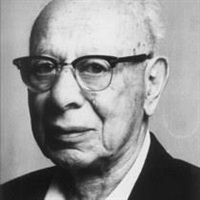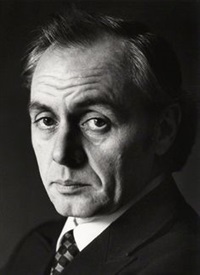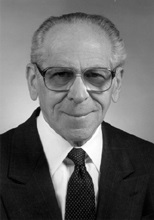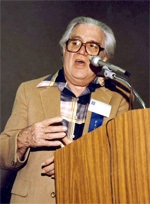EP85 Panel 01 - Schizophrenia - Bruno Bettelheim, PhD; Ronald D. Laing, MD; Thomas S. Szasz, MD; Carl A. Whitaker, MD
- Average Rating:
- Not yet rated
- Topic Areas:
- Topical Panels | Schizophrenia | Psychotherapy | Personality Disorders
- Categories:
- Evolution of Psychotherapy | Evolution of Psychotherapy 1985 | Pioneers in Couples and Family Therapy
- Faculty:
- Bruno Bettelheim | Ronald Laing, MD | Thomas Szasz, MD | Carl Whitaker, MD
- Duration:
- 1 Hour 01 Minutes
- Format:
- Audio Only
- Original Program Date:
- Dec 11, 1985
- License:
- Never Expires.
Description
Description: A landmark 1985 panel exploring schizophrenia through the perspectives of pioneering experts Bettelheim, Laing, Szasz, and Whitaker. The faculty challenged traditional psychiatric understanding, emphasizing patient dignity, individual experience, and the complex human story behind mental health diagnoses.
Moderated by Stuart M Gould, Jr, MD.
Educational Objectives:
- To compare and contrast clinical and philsophical perspectives of experts.
*Sessions may be edited for content and to preserve confidentiality*
Credits
Handouts
| Timestamped Transcript (769.5 KB) | 17 Pages | Available after Purchase |
| Ericksonian Learning Snapshot (265.1 KB) | 2 Pages | Available after Purchase |
Faculty

Bruno Bettelheim Related Seminars and Products
Bruno Bettelheim (August 28, 1903 – March 13, 1990) was an Austrian-born self-educated psychoanalyst who spent the bulk of his academic career from 1944 to 1973, as a professor of psychology at the University of Chicago and director of the Orthogenic School for Disturbed Children.[2][3]
He is perhaps best known for his essay The Uses of Enchantment (1976), which applied Freudian psychology to fairy tales and won the 1976 National Book Critics Circle Award for Criticism and the 1977 National Book Award in category Contemporary Thought.[4][5]Bettelheim wrote a number of articles and books on psychology for more than 40 years and had an international reputation on such topics as Sigmund Freud and emotionally disturbed children.

Ronald Laing, MD Related Seminars and Products
Ronald David Laing, usually cited as R. D. Laing, was a Scottish psychiatrist who wrote extensively on mental illness – in particular, the experience of psychosis. R.D. received his M.D. from Glasgow University. Laing's name comes to mind when one thinks of practitioners who have been most effective at challenging prevailing medical thinking on schizophrenia. He has practices psychotherapy for more than 35 years and has authored 11 volumes.
Laing teaches and practices in London. Formerly he served as Chairman of The Philadelphia Association; was associated with the Tavistock Clinic; and was a Fellow of The Foundations Fund for Research in Psychiatry.

Thomas Szasz, MD Related Seminars and Products
Thomas S. Szasz, (M.D., University of Cincinnati, 1944) was Professor of Psychiatry at the State University of New York, Upstate Medical Center in Syracuse. He was recipient of numerous awards, including the Humanist fo the Year Award from the American Humanist Association and the Distinguished Service Award from teh American Institute for Public Service. He has received a number of honorary doctorates and lectureships, and served on the editorial board or as consulting editor for ten journals.
Szasz has authored approximately 400 articles, book chapters, reviews, letters to the editor and columns. He has written 19 books.

Carl Whitaker, MD Related Seminars and Products
Carl Whitaker, MD, was an American physician and psychotherapy pioneer family therapist. Whitaker is most well-known for acknowledging the role of the entire family in the therapeutic process. He is the founder of experiential family therapy, or the symbolic-experiential approach to therapy. Rather than scapegoating one family member or even a specific family problem, experiential family therapy looks at the entire family system. Several other approaches to family therapy have drawn heavily from Whitaker's theories.


